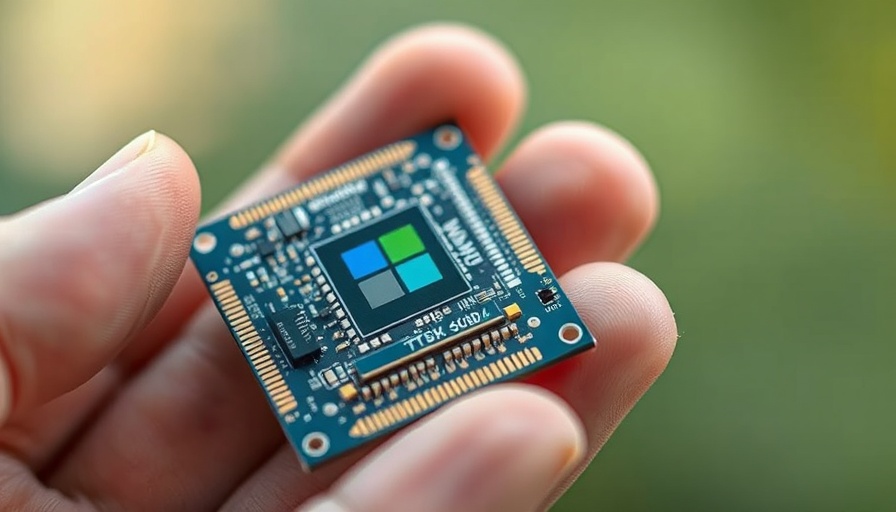
Microsoft's Quantum Leap: The Majorana Chip Explained
In a groundbreaking announcement, Microsoft has made significant strides in quantum computing with the unveiling of its Majorana chip. This new chip utilizes topological quantum bits (or qubits), which promise enhanced stability and scalability compared to traditional quantum computing technologies. As Microsoft embarks on its 20-year journey toward achieving practical quantum computing, the Majorana chip could serve as a cornerstone of this ambitious goal.
Understanding the Breakthrough
The Majorana chip is not just another quantum processor; it represents a paradigm shift in how quantum information is processed. Built using topological superconductors, this new chip can theoretically support a million qubits on a single device. Majorana particles, the fundamental building blocks of this system, exhibit unique properties that make them resistant to the environmental noise that has hampered previous qubit designs. This innovation could potentially lead to quantum computers that can operate efficiently and reliably.
The Bigger Picture: Rising Electricity Demand
While Microsoft’s advancements in quantum computing steal the headlines, the rising demand for electricity is a formidable global challenge that deserves attention. According to the International Energy Agency, global electricity demand surged by 4.3% in 2024 and is expected to continue to grow close to 4% annually. AI technologies and extensive data centers contribute heavily to this increase, but they represent just a fraction of the underlying issue.
As technology progresses, it’s essential to consider how innovations, like quantum computing, intersect with the growing energy needs of the planet. Quantum computers have the potential to revolutionize industries, making them more efficient, which in turn could play a crucial role in meeting future energy demands.
A New Era of Energy and Technology
The intersection of Microsoft’s quantum advancements and the escalating energy requirements highlights a significant opportunity for innovation. As quantum computers become more practical, they could enable breakthroughs in energy efficiency and sustainability across various sectors. With their enhanced computational power, these machines might help develop new materials for energy storage or optimize energy consumption on a massive scale.
However, experts caution that while exciting, these advancements do not come without challenges. Engineers will need to address complex issues related to scaling quantum technologies, including connecting them to the requisite infrastructure and ensuring they operate effectively in real-world applications.
What's Next for Quantum Computing?
The road ahead for Microsoft's quantum computing efforts is filled with promise but requires careful navigation. While researchers are enthusiastic about the potential of the Majorana chip, skepticism remains about how soon practical quantum computers will hit the market. As companies like Microsoft push boundaries, the global race for quantum supremacy continues, stirring competition from other leaders in the field.
Ultimately, the collaboration between cutting-edge technology and sustainable solutions will be vital for shaping the future.
 Add Row
Add Row  Add
Add 




Write A Comment